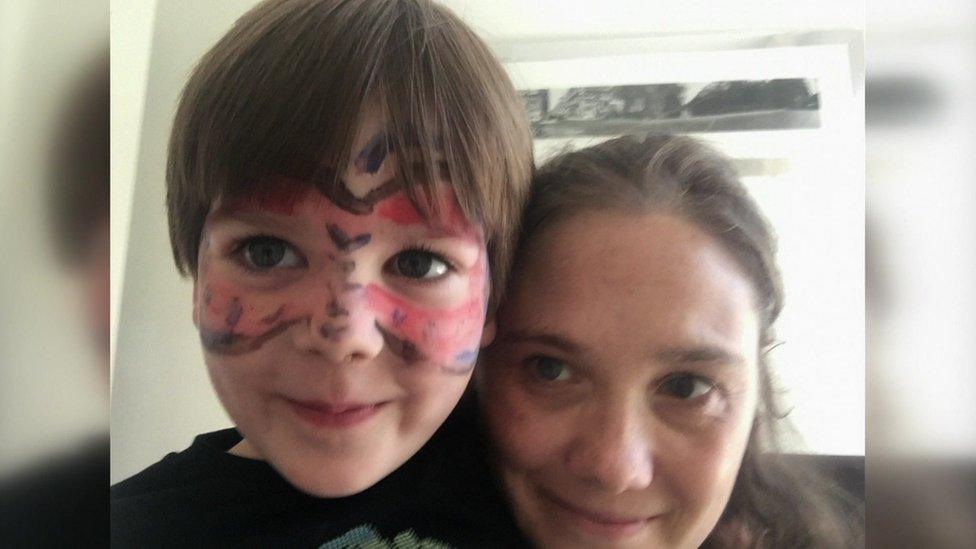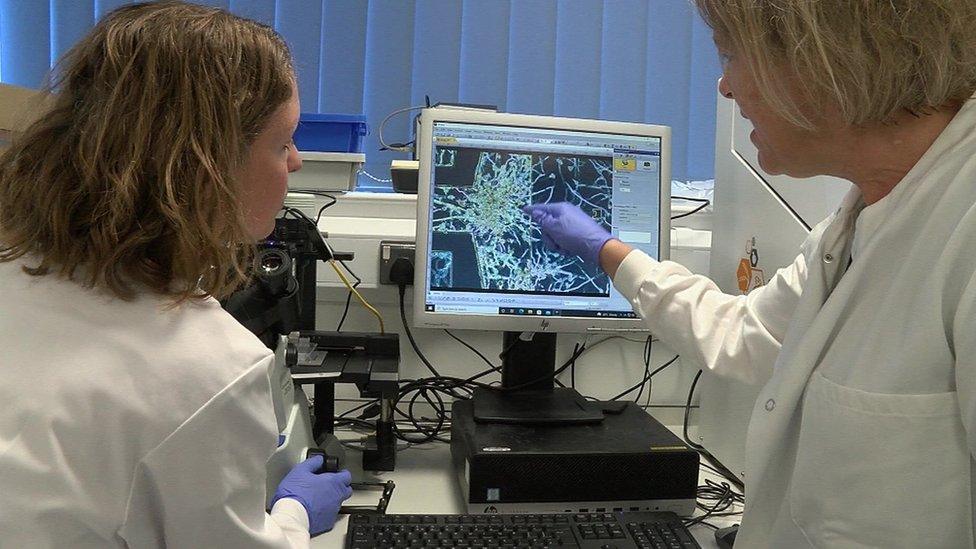Fungal research started by leukaemia boy's death
- Published

Susan Tesselaar said her son, Noah, deteriorated dramatically after he contracted mucormycosis
Academics are carrying out "vital research" to help cancer patients or those with a weak immune system survive complications caused by a fungal infection.
It comes as a result of a charity, started in the name of leukaemia patient Noah Tesselaar, funding research at the University of Exeter.
Noah died aged five after having a fungal infection, mucormycosis.
His mother said she hoped the work would allow quicker diagnoses.
Doctors treating Noah, who died in June 2020, were unable to identify that mucormycosis had taken hold until after his death.
His family set up Noah's Pink Balloon Leukaemia Fund in his memory and to help others.
The University of Exeter said it was the "second most common mould infection leading to excessive destruction of organs, blood vessels and has extremely high mortality rates of 80%".

The research is looking at ways to improve detecting mucormycosis
His mother, Susan Tesselaar, said he died in "a matter of days" after being admitted into an intensive care unit.
She said: "He deteriorated dramatically because we didn't have the diagnostic tools.
"We want those tools available to doctors on wards so they can do an un-invasive test which is fast, which means that treatment can be given at an early stage.
"We know that the medics treating Noah did everything they could and left no stone unturned.
"He was given antifungals but by this time, the infection, and we didn't know that it was a fungal infection, had completely taken hold, this is why early diagnosis and early treatment is critical."
The University of Exeter's MRC Centre for Medical Mycology said the "vital research" would help clinicians "diagnose and identify the type of fungal infection a patient has, so that treatment can be offered early".
Prof Adilia Warris, of the University of Exeter, said fungal infections in immunosuppressed patients were "under researched, and an underfunded area".
She said such research was "desperately needed to provide new ways to diagnose and treat these deadly fungal infections".

Follow BBC News South West on Twitter, external, Facebook, external and Instagram, external. Send your story ideas to spotlight@bbc.co.uk, external.